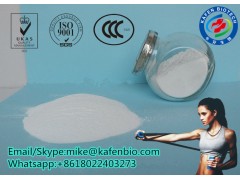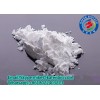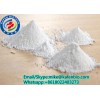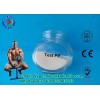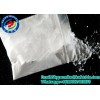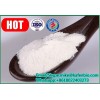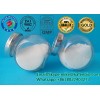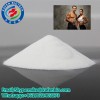Whatsapp:+8618022403273
Pharmaceutical Grade Raw Material Chitosan CAS 9012-76-4 for Food
Basic Info.
Chitosan
EINECS: 222-311-2
CAS : 9012-76-4
Molecular Formula: (C6H11O4N) n
Molecular Weight: 161.158 .n
Chemical Properties
Appearance: white powder.
Molecular Weight: 179.17112
Density: 1.75g/cm3
Melting Point: 88 deg C
Storage Temperature: Store in a tightly closed container. Store in a cool, dry, well-ventilated area away from incompatible substances.
Refractive index: 1.7
Solubility: insoluble in water
Stability: Stable. Incompatible with strong oxidizing agents.
Usage: Claimed to have the ability to retain fats and cholesterol in the stomach.
Properties: This product is non-toxic, odorless, off-white or slight yellow powder, and soluble in acid, insoluble in water and base or normal organic solutions.
Description:
Chitosan is a linear polysaccharide composed of randomly distributed β-(1-4)-linked D-glucosamine (deacetylated unit) and N-acetyl-D-glucosamine (acetylated unit). It is made by treating shrimp and other crustacean shells with the alkali sodium hydroxide.
Chitosan has a number of commercial and possible biomedical uses. It can be used in agriculture as a seed treatment and biopesticide, helping plants to fight off fungal infections. In winemaking it can be used as a fining agent, also helping to prevent spoilage. In industry, it can be used in a self-healing polyurethane paint coating. In medicine, it may be useful in bandages to reduce bleeding and as an antibacterial agent; it can also be used to help deliver drugs through the skin.
More controversially, chitosan has been asserted to have use in limiting fat absorption, which would make it useful for dieting, but there is evidence against this.
Other uses of chitosan that have been researched include use as a soluble dietary fiber.
Chitosan is extracted from chitin, insoluble in water but soluble in dilute acid and absorbed by human body. As the firdt derivate, it's chemical constitution is macromolecule alkalescent polysaccharide polymer with cation. It has peculiar physical, chemical properties and bioactive function.
Chitosan is listed as follows:
A. High Density Chitosan
B. High Viscosity Chitosan
C. Industrial Grade Chitosan
D. Food Grade Chitosan
E. Medical Grade Chitosan
F. Low Molecular Weight Chitosan
G. Aroxymethyl Chitosan
H. Chitosan Oligosaccharide
2.Applications:
1)Food Field
Used as food additives, thickeners, preservatives fruits and vegetables, fruit juice clarifying agent, forming
agent, adsorbent, and health food.
2)Medicine, health care products field
As the chitosan non-toxic,has anti-bacterial, anti-inflammatory, hemostatic, and immune function, can be used
as artificial skin, self-absorption of surgical sutures, medical dressing Branch, bone, tissue engineering
scaffolds, enhance liver function, improve digestive function, blood fat, lowering blood sugar, inhibiting tumor
metastasis, and adsorption and complexation of heavy metals and can be excreted, and so on, was vigorously
applied to health food and drug additives.
3)Environmental protection field
Chitosan and its derivatives is a good flocculant for wastewater treatment and metal recovery from metal-containing waste water; in textile field: as a mordant, health care fabric, sizing agents, printing and dyeing
4).Agricultural field
As growth promoters, bio-pesticides, feed additives, seeds, etc.
5)Field of tobacco
Tobacco sheet used as adhesives, low-tar filter and so on.
Chitosan is refined from deacetylation of chitin which is extracted from deep-sea Alaska crab cods. As the only basic polysaccharide among natural polysaccharides, this product has many physical and chemical characteristics and physiological activities. Precisely, this product can control cholesterol, inhibit bacterial activity, prevent and control high blood pressure, absorb and excrete heavy metals, maintain humidity and strengthen immunity. In food industry, this product can be used as antibacterial agent, fruit and vegetable preservative and antioxidant. There are many special functional groups in molecular chain, so the chitosan can be manufactured into many products according to different reactions on functional groups, such as acylation, sulfation and oxidation, grafting and crosslinking, hydroxyethylation and hydroxymethylation. These products can be used in many fields, including medicine, food, chemical, cosmetic, water treatment, metal extraction and recovery, biochemical and biomedical engineering. There are many types of chitosan, including GS-chitosan oligosaccharide, high density type, special molecular weight type, medical/food / industrial grade type, water soluble type and specialized type.
Chitosan can inhibit growth and reproduction of fungi, bacteria, and virus. When this product is used as coating preservation, it can inhibit respiratory metabolism and water loss of fruits and vegetables, thus slowing their aging process of organization and structure and effectively extending their postharvest life. This product can also be used as antioxidant. In heating process, free iron ions are released from meat hemoglobin and they form chelates with chitosan, thus their catalytic activity is inhibited.
3.Usage:
Agricultural and horticultural use
The agricultural and horticultural uses for chitosan, primarily for plant defense and yield increase, are based on how this glucosamine polymer influences the biochemistry and molecular biology of the plant cell. The cellular targets are the plasma membrane and nuclear chromatin. Subsequent changes occur in cell membranes, chromatin, DNA, calcium, MAP Kinase, oxidative burst, reactive oxygen species, callose pathogenesis-related (PR) genes and phytoalexins.
Natural biocontrol and elicitor
In agriculture, chitosan is used primarily as a natural seed treatment and plant growth enhancer, and as an ecologically friendly biopesticide substance that boosts the innate ability of plants to defend themselves against fungal infections. The natural biocontrol active ingredients, chitin/chitosan, are found in the shells of crustaceans, such as lobsters, crabs, and shrimp, and many other organisms, including insects and fungi. It is one of the most abundant biodegradable materials in the world.

